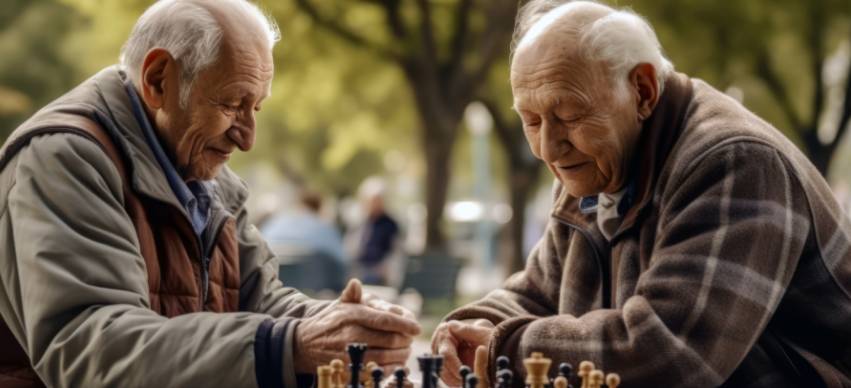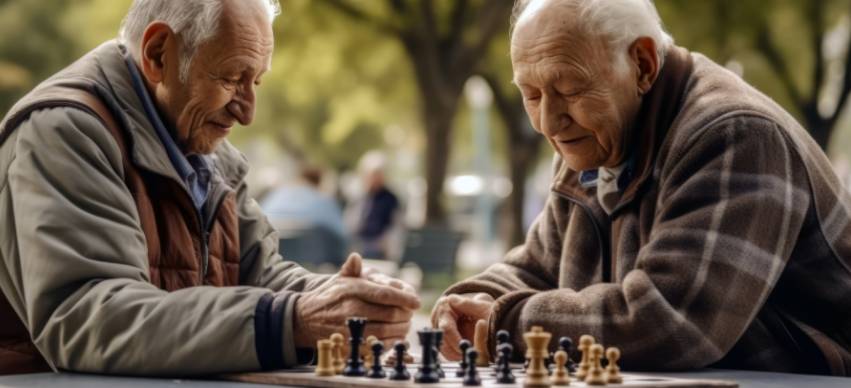What Comprehensive Oral Care Really Looks Like in Modern Den..
11 Min Read


Cognitive decline stands as one of the most daunting aspects of aging, affecting a significant portion of the elderly population. It's a spectrum of symptoms that can range from benign forgetfulness to more serious conditions that affect daily functioning, such as Alzheimer's disease and other forms of dementia.
The stakes are high as cognitive decline can lead to a decreased quality of life, loss of independence, and increased burden on families and healthcare systems. Thus, understanding and combating this issue is not just a personal concern but a growing public health imperative.
This article explores the multifaceted approach to combating cognitive decline in aging populations.
Understanding Cognitive Decline
Cognitive decline refers to the gradual loss of brain function as people age. It can manifest in various ways, including memory loss, difficulty in problem-solving, and challenges with language.
The brain's plasticity, or ability to form new connections, diminishes with age, affecting these cognitive domains. It is now understood that genetics, lifestyle choices, and chronic diseases play a significant role in determining one's trajectory of cognitive health.
Screening for cognitive impairment is becoming a routine part of geriatric care, enabling earlier intervention and management of symptoms. Preventative measures and timely diagnosis are key in reducing the incidence and severity of cognitive decline.
Nutritional Interventions

Nutrition plays a significant role in maintaining brain health. A diet rich in antioxidants, vitamins, and omega-3 fatty acids has been shown to mitigate cognitive decline. These nutrients, found in foods like berries, leafy greens, and fish, help to combat oxidative stress and inflammation, which are linked to brain aging.
Nutritional interventions are especially important as they can be controlled and modified to support cognitive function at any age. Additionally, educating the aging population about the importance of nutrition can lead to improved dietary habits that support brain health. This can involve providing cooking classes that focus on brain-healthy recipes or incorporating nutrient-dense meals in the dining options of an aged care facility.
As metabolism slows with age, it's also important to focus on how food is prepared and served to cater to the changing digestive needs and preferences of the elderly, ensuring that they obtain the necessary nutrients to support cognitive health.
Promoting Physical Activity
Engagement in regular physical activity is a cornerstone of brain health for aging individuals. Exercise increases blood flow to the brain, which may encourage the growth of new brain cells and connections between them.
Furthermore, physical activity is linked to lower rates of cognitive decline, potentially due to its impact on reducing other risk factors such as obesity, hypertension, and diabetes, which can exacerbate brain health issues.
Tailoring exercise programs to the elderly population's abilities and interests ensures higher participation rates and sustains motivation. Walking groups, water aerobics, and gentle yoga classes are popular activities that can be easily adapted for individuals with varying levels of mobility.
Regularly scheduled and supervised sessions can make physical activity a social occasion, which also promotes mental health by reducing feelings of isolation and depression that can accompany aging.
Mental Stimulation
Mental stimulation is another pillar supporting cognitive health in older adults. Just as the body requires exercise to stay fit, the brain needs to be challenged to maintain its functioning.
Engaging in mentally stimulating activities such as puzzles, reading, or learning new skills can help preserve cognitive function and slow down cognitive decline. It encourages the brain to stay active and agile, which may protect against the wear and tear that comes with age.
Programs focusing on education and skill development can be introduced in community centers and retirement homes to encourage lifelong learning. Group classes on topics ranging from language learning to computer skills or book clubs can provide both the mental challenge and social interaction that are beneficial for brain health.
The key is to find stimulating and enjoyable activities that are sustainable over the long term, fostering a sense of achievement and mental agility.
Social Engagement
Isolation and loneliness are significant risk factors for cognitive decline in the elderly. Social engagement, on the other hand, provides emotional support and cognitive stimulation, which can delay the onset of dementia.
By maintaining strong social connections, individuals are not only happier but may also exhibit better cognitive function. Communities and families that foster interaction and engagement can thus play a pivotal role in maintaining the cognitive health of their older members.
Opportunities for social interaction should be abundant and varied, including organized group activities, community volunteering, and social outings. Within an aged care setting, creating communal spaces and events where residents can interact with each other and with visitors from outside the facility helps maintain these crucial social ties.
It's about creating an environment where social engagement is part of the daily fabric of life, providing a positive and nurturing atmosphere for cognitive well-being.
Conclusion
Cognitive decline is a multifaceted challenge that demands a comprehensive and multifactorial approach. Strategies like promoting physical activity, mental stimulation, nutritional interventions, social engagement, proper sleep, and medical management all play a significant role in preserving brain health in aging populations.
Embracing these strategies not only benefits individuals but also relieves the broader societal impacts of aging. As life expectancy increases, ensuring the vitality of the mind becomes as important as the health of the body. It is by investing in these areas that communities can help safeguard the cognitive well-being of their elderly members, allowing them to live out their years with dignity and independence.